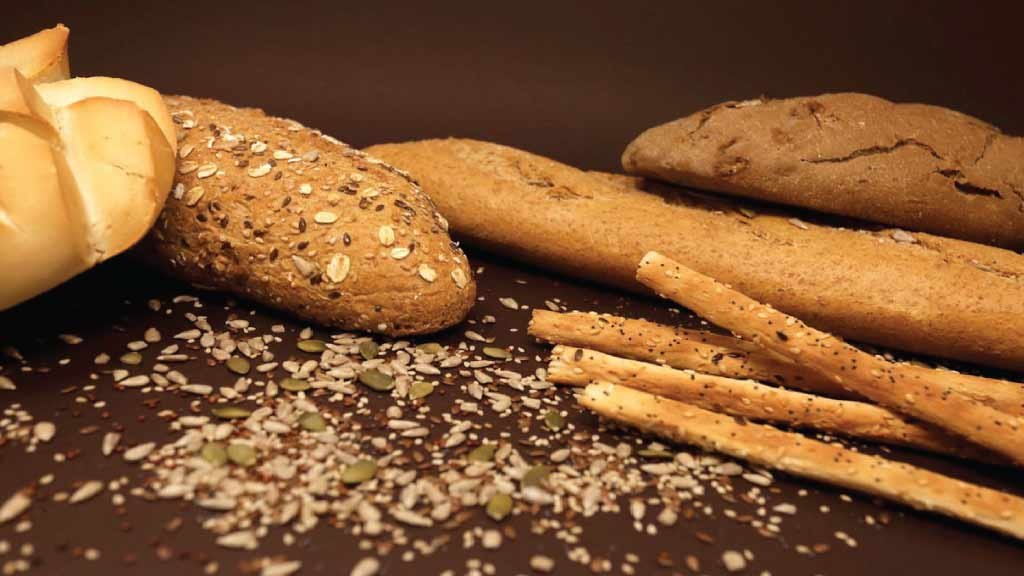In today’s world of convenience and processed foods, it’s easy to forget the simple power of whole grains. Wholemeal foods, also known as whole grains, are nutritional powerhouses packed with essential nutrients, fiber, and health benefits. This comprehensive guide delves into the world of wholemeal foods, exploring their definition, varieties, health advantages, and tips for incorporating them seamlessly into your diet.
What are Wholemeal Foods?
Whole grains consist of the entire kernel, including the bran, germ, and endosperm. The bran, the outermost layer, is rich in fiber and B vitamins. The germ, the core of the kernel, contains vitamins, minerals, and healthy fats. Finally, the endosperm, the largest part, provides carbohydrates for energy. Refining grains removes the bran and germ, stripping them of essential nutrients and leaving behind mainly starch. This is why wholemeal foods are superior in nutritional value compared to their refined counterparts.
A Spectrum of Wholemeal Varieties
The world of wholemeal foods offers a delightful variety to explore. Here are some popular options to add diversity and taste to your meals:
Oats:
A breakfast staple, oats are a fantastic source of soluble fiber, which helps lower cholesterol and regulate blood sugar. They are naturally gluten-free and incredibly versatile, enjoyed in porridge, baked goods, or savory dishes.
Whole Wheat:
A familiar favorite, whole wheat provides a good dose of fiber, protein, and various vitamins and minerals. It’s perfect for breads, pastas, cereals, and even couscous. Spelt and durum wheat are varieties of whole wheat offering slightly different textures and flavors.
Barley:
Often used in soups and stews, barley boasts a chewy texture and is packed with fiber, beta-glucan (beneficial for heart health), and essential minerals.
Rye:
Rye flour adds a distinctive tang to breads and crackers. It’s a good source of fiber and contains unique compounds that may improve blood sugar control.
Brown Rice:
A healthier alternative to white rice, brown rice retains its bran and germ, offering fiber, vitamins, and minerals. It has a nuttier flavor and a chewier texture than white rice. Wild rice, another whole grain option, boasts a complex flavor and adds a unique touch to dishes.
Quinoa:
This ancient grain is a complete protein source, meaning it contains all nine essential amino acids. It’s also high in fiber, iron, and magnesium. Quinoa cooks quickly and has a slightly nutty flavor, making it a versatile addition to salads, bowls, and side dishes.
Buckwheat:
Although called wheat, buckwheat is gluten-free. It has a slightly nutty flavor and is a good source of protein and fiber. Buckwheat pancakes are a popular breakfast option, and it can also be enjoyed in savory dishes like soba noodles.
Millet:
An ancient grain known for its digestibility, millet is a good source of protein, fiber, and B vitamins. It has a mild, slightly sweet flavor and can be cooked like rice or quinoa.
Unlocking the Health Benefits of Wholemeal Foods
Wholemeal foods offer a multitude of health benefits that contribute to overall well-being. Here are some key advantages to incorporating them into your diet:
-
Enhanced Heart Health:
Imagine your heart beating strong and steady, fueled by the power of whole grains. These nutritious wonders are not just food; they’re your heart’s best friend. Rich in fiber, they heroically battle against the villainous LDL (bad) cholesterol, ensuring your heart stays safe from the clutches of heart disease. With every bite, you’re not just eating, you’re fortifying your heart, one grain at a time.
-
Joyful Digestive Health:
Picture your digestive system as a bustling city, with wholemeal foods as the diligent workers keeping everything running smoothly. Their high fiber content ensures that your digestive tract operates like a well-oiled machine, promoting regularity and maintaining the vibrant health of your gut. Say goodbye to digestive woes and hello to a happy, harmonious tummy dance!
-
Weight Management Bliss:
In your journey towards a healthier weight, whole grains become your trusty companions, guiding you with their complex carbohydrates and fiber. With each delicious bite, they provide sustained energy, keeping those hunger pangs at bay and empowering you to conquer your weight management goals. Feel the satisfaction of being fuller for longer, knowing that you’re nourishing your body and soul with every mouthful.
-
Diabetes Prevention Triumph:
Wholemeal foods stand as mighty guardians against the looming threat of type 2 diabetes. Their fiber-rich goodness works tirelessly to regulate your blood sugar levels, shielding you from the shadows of this debilitating disease. With whole grains by your side, you march confidently towards a future free from the shackles of diabetes, empowered and unstoppable.
-
Cancer-fighting Warrior:
In the battlefield against cancer, whole grains emerge as your stalwart allies, offering protection against the onslaught of this dreaded enemy. Studies illuminate the path, revealing that a diet abundant in whole grains may hold the key to lowering the risk of certain cancers, such as the formidable colon cancer. With every bite, you’re not just nourishing your body, you are arming yourself with the strength to combat cancer’s advances.
-
Nutrient-rich Delight:
Indulge in the bounty of nature’s treasures as you savor wholemeal foods bursting with essential vitamins, minerals, and antioxidants. Each morsel is a symphony of flavor and nourishment, enriching your body and soul with the goodness it craves. With whole grains, every meal becomes a celebration of health and vitality, leaving you feeling fulfilled and radiant from the inside out.
Embracing Wholemeal Foods in your Diet
Making simple swaps and incorporating wholemeal foods into your daily meals is easier than you think. Here are some tips to get you started:
- Start with Breakfast: Opt for whole-wheat toast, oatmeal with nuts and seeds, or whole grain breakfast cereals with minimal added sugar.
- Choose Brown Rice over White: Replace white rice with brown rice in your favorite dishes for a fiber boost.
- Explore Whole-Grain Pastas: Swap out regular pasta for whole-wheat or lentil pasta for added protein and fiber.
- Bake with Whole-Wheat Flour: Use whole-wheat flour in your baking
Embracing Wholemeal Foods in your Diet:
- Snack Smart: Opt for whole-grain crackers, air-popped popcorn, or homemade trail mix with whole grains and nuts for healthy snacking.
- Get Creative with Salads: Add cooked quinoa, bulgur wheat, or barley to salads for extra texture, protein, and fiber.
- Think Beyond Bread: Explore whole-grain wraps, tortillas, and flatbreads for sandwiches and wraps.
- Experiment with Ancient Grains: Include quinoa, millet, or buckwheat in your meals for a taste adventure and additional nutrients.
- Read Labels Carefully: Be mindful of misleading labels. Look for “whole wheat” or “100% whole grain” as the first ingredient on the list.
- Gradual Integration: Start by incorporating small changes to your diet and gradually increase your intake of wholemeal foods to allow your body to adjust.
Beyond the Basics: Cooking with Wholemeal Foods
Wholemeal foods offer a world of culinary possibilities. Here are some tips for cooking with them:
- Soaking: Soaking some whole grains like brown rice or quinoa before cooking can shorten cooking time and improve digestibility.
- Flavor Boosters: Enhance the flavor of whole grains with herbs, spices, roasted vegetables, or a drizzle of olive oil.
- Adding Moisture: To prevent dryness, add broth or stock while cooking whole grains.
- Experiment with Textures: Combine different whole grains like brown rice with quinoa or barley for interesting textures and flavors.
- Leftover Magic: Leftover whole grains can be used in salads, stir-fries, or stuffed vegetables.
A Wholemeal Lifestyle for Long-Term Health
Making wholemeal foods a staple in your diet is a simple yet powerful way to invest in your long-term health. By incorporating these nutrient-rich ingredients into your meals, you will be providing your body with the essential building blocks it needs to thrive. Remember, small changes can lead to big results. Start incorporating wholemeal foods today and experience the difference they can make in your overall well-being.
Related Posts:
10 amazing Benefits of Carrot Juice And Beetroot Juice
Top 7 Subway Meats: Savory Selections to Satisfy Your Cravings
10 healthy protein lunch ideas
Whole grains: Hearty options for a healthy diet
In Conclusion
Wholemeal foods are more than just a dietary choice, they are a commitment to a healthy lifestyle. With their abundance of nutrients, fiber, and health benefits, wholemeal foods offer a powerful way to navigate towards a healthier you. Explore the variety, embrace the taste, and unlock the power of wholemeal foods for a vibrant and balanced life.

